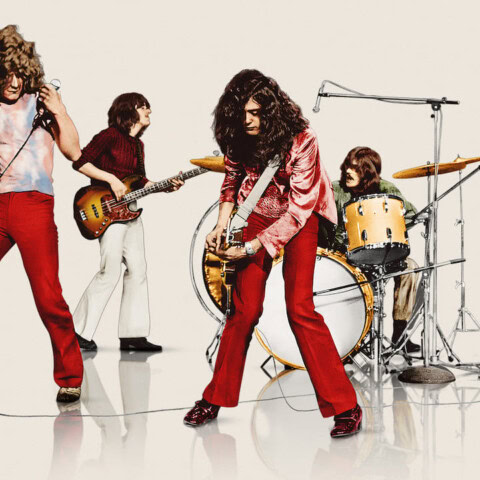5 stars
Disney has finally rid itself of patriarchal cliches in its foray into Polynesia, and DHAYANA SENA is knocked out by a film that is both intrinsically Disney and effortlessly updates its attitude.
 THE FIFTY-SIXTH Disney animated movie since Snow White way back in 1937, Moana – released in 3D – tells the story of the daughter and heir to the chief (voiced by Temuera Morrison) of Motonui, a small Polynesian island, who struggles to find balance between her deep longing to explore the vast ocean and her duties to her village.
THE FIFTY-SIXTH Disney animated movie since Snow White way back in 1937, Moana – released in 3D – tells the story of the daughter and heir to the chief (voiced by Temuera Morrison) of Motonui, a small Polynesian island, who struggles to find balance between her deep longing to explore the vast ocean and her duties to her village.
With her island slowly decaying, Moana (Auli’i Cravalho) is determined to find a solution. Encouraged by stories of the demigod Maui (Dwayne Johnson), Moana sets off on an adventure to find him, accompanied only by her silly pet chicken, Heihei (Alan Tudyk).
The plot of the film is intriguing, with a story that has some basis in cultural myth and one in which viewers, especially those with knowledge and experience of Polynesian culture, will find engaging. Anyone who has been exposed to Maori and wider Polynesian culture will find Moana‘s story to be incredibly topical and one in which New Zealand audiences can identify with. Together with interesting characters, great humour, fabulous musical numbers and spectacular visual animation, Moana is a film that is bound to entertain for years to come.
Right from the outset, Moana rejects stereotypes and focuses on a strong female lead. It is also the first Disney film in quite some time to have cultural heritage as its focal point.
 Culturally, Moana portrays a fairly accurate representation of what island life is like, particularly back in the day. Living within a tribe or community means living as part of a collective, where to benefit one is to benefit all and the shared effort is what keeps the people happy and the island thriving. This is illustrated by Motonui’s chief, who urges Moana to remain on the island to keep her people safe and happy, and warns her that there’s nothing to explore beyond the reef. Of course, Moana believes otherwise, and her longing to explore can be said to be the same longing felt by voyagers through the ages yearning to explore and discover new lands.
Culturally, Moana portrays a fairly accurate representation of what island life is like, particularly back in the day. Living within a tribe or community means living as part of a collective, where to benefit one is to benefit all and the shared effort is what keeps the people happy and the island thriving. This is illustrated by Motonui’s chief, who urges Moana to remain on the island to keep her people safe and happy, and warns her that there’s nothing to explore beyond the reef. Of course, Moana believes otherwise, and her longing to explore can be said to be the same longing felt by voyagers through the ages yearning to explore and discover new lands.
Similarly, the film includes aspects of spirituality and mythology that some Polynesian cultures hold dear. This is shown through the associations the film makes with all things being treated as ‘living’. The ocean, for example, is treated like a living being and is animated as such, with the ocean playing a role in helping Moana achieve her goal. Not only that, but all creatures are depicted as having a spirit, which lives on even beyond death.
In many ways, Moana sets itself apart from traditional Disney animated films and challenges its own film tropes and stereotypes, a feat which represents the age we are living in today. For instance, Maui pokes fun of the traditional Disney princess films, associating Moana with being a typical princess off on an adventure with her animal sidekick, which Moana outright rejects, despite technically fitting the mould.
 Furthermore, the film places its emphasis and focus on Moana as the lead character, with Maui playing a side role to assist her on her journey, instead of being a love interest, which is what most male lead characters become in Disney films. Of course, Maui is important, and even has his own introductory song, but this doesn’t detract from Moana or her screen-time.
Furthermore, the film places its emphasis and focus on Moana as the lead character, with Maui playing a side role to assist her on her journey, instead of being a love interest, which is what most male lead characters become in Disney films. Of course, Maui is important, and even has his own introductory song, but this doesn’t detract from Moana or her screen-time.
In addition, nowhere in the film was there a potential husband for Moana, despite the film being centred on traditional tribal cultures, and she’s treated as an equal to any male counterpart. This is illustrated in her father’s speech about Moana becoming the next chief, like her father and his father before him, and so on, as if it was completely natural for a female to succeed a line of traditionally male leaders. What’s especially unique about this is that there’s no hint of times changing or that life on the island will change with Moana as chief. The succession is treated as entirely normal, which is a massive step for Disney, who has historically portrayed their female characters as needing their male counterparts in order to succeed in their objectives.
Despite detaching itself from Disney’s traditions, Moana still teaches viewers the typical Disney lesson of being true to oneself and to not forget who you truly are, which is always a nice little message to take away from a film. Similarly, what is a Disney film without a villain’s musical number? Hence, a song almost reminiscent of The Little Mermaid‘s ‘Poor Unfortunate Souls’ and The Little Mermaid 3‘s ‘Just One Mistake’.
 Visually, Moana is stunning with scenery that looks almost realistic. Together with a great cast of characters, each unique and well developed, the film adds a sense of realism, as if an adaptation of true events.
Visually, Moana is stunning with scenery that looks almost realistic. Together with a great cast of characters, each unique and well developed, the film adds a sense of realism, as if an adaptation of true events.
Moana is an excellent film which challenges traditions, while maintaining its important Disney feel and traditions. With fantastic 3D animation allowing for stunning scenery, as well as a vibrant soundtrack which rivals that of Frozen, Moana is the perfect family-friendly film to watch this holiday season. DHAYANA SENA
- This review was first published on www.thevanguardsite.com














